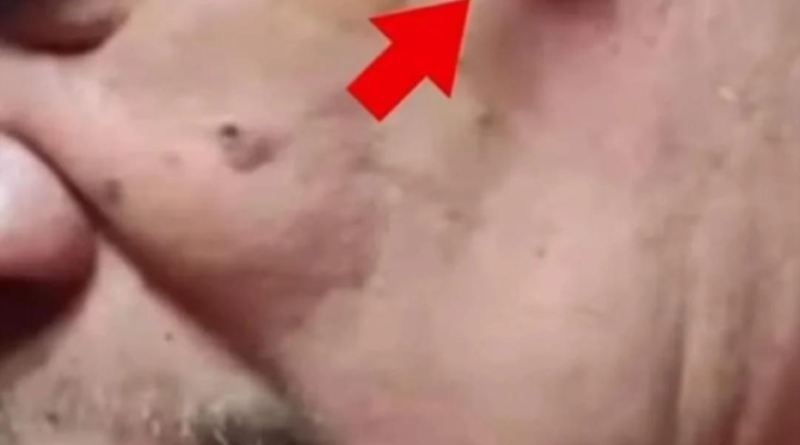Acne is an incredibly common and frustrating skin
condition that affects millions of people, regardless of age or background. Whether it’s the occasional breakout or persistent acne, it can significantly impact a person’s self-confidence and quality of life. That’s where professionals like Dr. Sandra Lee, also known as “Dr. Pimple Popper,” come into the picture. Her videos have become a sensation, offering a peek into the world of dermatology and providing solutions for those dealing with acne and other skin conditions.
In this article, we will explore the various ways to combat acne effectively and highlight some of the insights shared by dermatologists like Dr. Lee. From professional treatments to at-home remedies, we’ll cover what works best for different types of acne, helping readers understand the importance of personalized skincare routines.
Understanding Acne: What Causes It?
Before diving into the treatments, it’s essential to understand what causes acne. Acne is a result of clogged hair follicles, excess oil production, and bacteria on the skin. The severity of acne can range from mild breakouts to severe cystic acne, which can be painful and leave long-term scars.
everal factors contribute to acne flare-ups, including:
- Hormonal changes (especially during puberty, pregnancy, or menopause)
- Stress
- Diet (high glycemic foods and dairy are common culprits)
- Genetics
- Certain medications (like steroids or birth control)
- Poor skincare routines
Identifying the root cause of acne is crucial to selecting the right treatment. That’s where dermatologists, like Dr. Lee, come into play by helping to diagnose the underlying issues and recommend appropriate solutions.
Professional Acne Treatments
One of the most common suggestions for those battling acne is seeking professional help. Dermatologists offer a variety of acne treatments that are more powerful and targeted than over-the-counter products. A consultation with a skincare expert is often the best starting point to identify what type of acne you have and what treatments will work best for your skin type.
1. In-Studio Acne Treatments
Professional acne treatments often begin in a dermatology office or skincare studio. These treatments include deep cleansing facials, chemical peels, and extractions that remove clogged pores and prevent further breakouts. Aesthetic experts, like those in Holladay dermatology clinics, provide personalized solutions tailored to each client’s unique needs.
- Facials and Extractions: These treatments involve deep cleansing, exfoliation, and manual extraction of blackheads and whiteheads. Extractions are especially helpful for people with comedonal acne, as they help clear pores without causing scarring.
- Chemical Peels: These are chemical solutions applied to the skin to remove dead skin cells and unclog pores. Chemical peels can be effective for treating acne, hyperpigmentation, and scars. Dermatologists customize the strength of the peel depending on the severity of the acne.
2. Oral Medications
If topical treatments alone aren’t enough, dermatologists may recommend oral medications. Oral acne treatments are often used for moderate to severe cases of acne that don’t respond well to topical treatments.
- Oral Antibiotics: These are used to reduce inflammation and kill acne-causing bacteria. Oral antibiotics are often prescribed for short-term use to prevent antibiotic resistance.
- Birth Control Pills: For women with hormonal acne, birth control pills can regulate hormones that trigger acne flare-ups.
- Isotretinoin (Accutane): This powerful medication is reserved for severe cystic acne that hasn’t responded to other treatments. Isotretinoin works by shrinking the oil glands in the skin, reducing the amount of oil produced and preventing clogged pores.
3. Topical Prescription Treatments
For mild to moderate acne, topical treatments remain the most common solution. Prescription-strength topical creams, gels, and lotions can be significantly more effective than over-the-counter products.
- Topical Retinoids: These vitamin A derivatives are widely used to treat acne. They help promote cell turnover, keeping pores clear and preventing future breakouts. Retinoids are particularly effective for blackheads, whiteheads, and inflammatory acne.
- Topical Antibiotics: Often combined with benzoyl peroxide, these antibiotics help reduce bacteria and inflammation on the skin.
- Benzoyl Peroxide: This is an effective treatment for mild to moderate acne. It works by killing acne-causing bacteria and reducing inflammation.
4. Laser and Light Therapy
For those looking for advanced acne treatment, laser therapy may be an option. Laser and light-based treatments target acne at the source, helping to reduce inflammation, kill bacteria, and promote healing. These treatments can be combined with other therapies to accelerate results.
- Blue Light Therapy: This type of phototherapy uses light to target acne-causing bacteria on the skin. Blue light therapy can be effective for mild to moderate acne, particularly in patients who haven’t responded well to topical treatments.
- Laser Therapy: Laser treatments work by penetrating the skin’s surface and targeting the oil glands, reducing the amount of oil produced. Laser therapy can also help with acne scars by stimulating collagen production.
The Importance of At-Home Skincare
While professional treatments can provide immediate and noticeable results, at-home skincare routines are crucial to maintaining clear skin in the long run. Even after visiting a dermatologist or aesthetician, patients must commit to regular skincare habits to prevent future breakouts.
